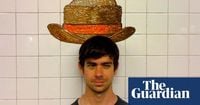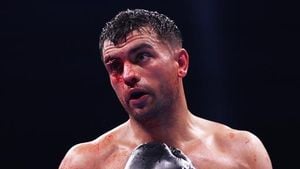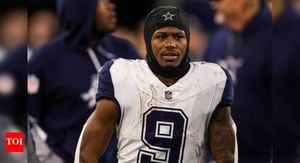In a rapidly evolving digital landscape, the documentary Twitter: Breaking the Bird delves into the tumultuous history of Twitter, from its inception in 2006 to its controversial acquisition by Elon Musk in 2022. The film, airing on BBC Two, features insights from Twitter's co-founders Evan Williams and Biz Stone, alongside other key figures who shaped the platform's journey.
Initially dismissed as a trivial concept, Twitter emerged from a small office in San Francisco where its founders created the platform in just under two weeks. Jack Dorsey, one of the co-founders, proposed the idea of "status updates," which was met with skepticism. In fact, the early reaction was often, "This is the stupidest thing ever," reflecting the doubts surrounding its viability.
As the platform grew, it became a powerful tool for communication, facilitating significant movements like Black Lives Matter and the Arab Spring. However, the documentary reveals the darker side of this evolution, illustrating how Twitter struggled to balance free speech with the need for moderation. This duality became increasingly pronounced as the platform faced various challenges, including rampant abuse and misinformation.
Katy Perry's humorous observation that Twitter was akin to saying, "Hi I’m putting on a sock," to an audience of hundreds of thousands encapsulates the platform's unique blend of the mundane and the monumental. Yet, it was not long before the platform became a breeding ground for toxicity. In 2007, Ariel Waldman recounted her experience of receiving abusive messages, only to find that Dorsey's response was to dismiss the issue, stating, "We have reviewed the matter and decided it is not in our best interest to get involved." This indifference to user safety marked a critical flaw in the platform's early philosophy.
The documentary does not shy away from illustrating the chaos that ensued as Twitter's user base exploded. During a high-profile moment in the 2010 World Cup, the site famously crashed when fans celebrated a USA goal, coinciding with Russian President Dmitry Medvedev's first tweet from Twitter HQ. Such incidents highlighted the platform's growing pains and the challenges of maintaining stability amidst explosive growth.
Despite its rapid rise, Twitter's leadership grappled with the implications of their creation. The film portrays a team that was often too caught up in the excitement of being the "free speech wing of the free speech party" to recognize the need for moderation. As the platform became a conduit for both positive social movements and harmful ideologies, the absence of a clear moderation strategy became increasingly problematic.
Interestingly, the documentary features archival footage of Dorsey but lacks fresh interviews, leaving a noticeable gap in the narrative. Critics have pointed out that Dorsey's absence is a significant oversight, especially given his pivotal role in the platform's history. The film instead focuses on the perspectives of other co-founders and employees, who reflect on the ideological journey of Twitter.
As the documentary progresses, it becomes evident that the founders' initial vision was marred by a failure to anticipate the darker aspects of human nature that would manifest on their platform. The film suggests that the very architecture of Twitter was designed without adequate consideration for the consequences of unmoderated speech.
In a poignant moment, Del Harvey, who was hired as head of Trust and Safety, likens the site to a "perfectly engineered kitten" that, while seemingly harmless, possesses the capacity to cause significant harm. This metaphor underscores the disconnect between Twitter's playful exterior and the serious implications of its unchecked power.
As the narrative unfolds, it becomes clear that the transition to X under Musk's ownership has not been the sole issue facing the platform. The documentary hints at the ongoing exodus of users to competing platforms like Instagram, Bluesky, and TikTok, suggesting that the challenges Twitter faces are deeply rooted in its history rather than merely a result of recent changes.
Ultimately, Twitter: Breaking the Bird is not just a chronicle of a social media platform; it is a cautionary tale about the complexities of digital communication in the modern age. The film paints a nuanced picture of Twitter's legacy, revealing both its groundbreaking achievements and its failures. As viewers reflect on the documentary, they are left to ponder the broader implications of a platform that has shaped public discourse, for better or worse.
As the documentary concludes, it serves as a reminder that the story of Twitter is still unfolding, with its future uncertain in a landscape where user expectations and societal norms continue to evolve. For those interested in the intricate dynamics of social media and its impact on society, this documentary is a must-watch.
Twitter: Breaking the Bird is available for streaming on BBC iPlayer, offering viewers a comprehensive look at the rise and fall of one of the most influential platforms of the 21st century.






